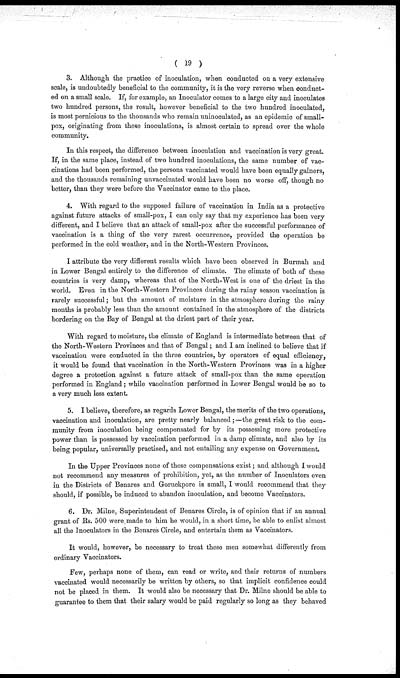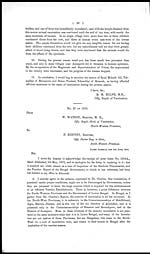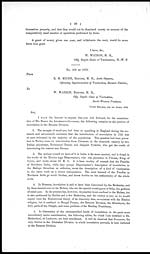Medicine - Vaccination > 1866-1901 - Annual report upon vaccination in the North-Western Provinces > Vaccination North-Western Provinces 1866-1877 > 1869-1870 - North-Western Provinces. Returns of vaccination for the season of 1869-70
(35) Page 19
Download files
Individual page:
Thumbnail gallery: Grid view | List view

( 19 )
3. Although the practice of inoculation, when conducted on a very extensive
scale, is undoubtedly beneficial to the community, it is the very reverse when conduct-
ed on a small scale. If, for example, an Inoculator comes to a large city and inoculates
two hundred persons, the result, however beneficial to the two hundred inoculated,
is most pernicious to the thousands who remain uninoculated, as an epidemic of small-
pox, originating from these inoculations, is almost certain to spread over the whole
community.
In this respect, the difference between inoculation and vaccination is very great.
If, in the same place, instead of two hundred inoculations, the same number of vac-
cinations had been performed, the persons vaccinated would have been equally gainers,
and the thousands remaining unvaccinated would have been no worse off, though no
better, than they were before the Vaccinator came to the place.
4. With regard to the supposed failure of vaccination in India as a protective
against future attacks of small-pox, I can only say that my experience has been very
different, and I believe that an attack of small-pox after the successful performance of
vaccination is a thing of the very rarest occurrence, provided the operation be
performed in the cold weather, and in the North-Western Provinces.
I attribute the very different results which have been observed in Burmah and
in Lower Bengal entirely to the difference of climate. The climate of both of these
countries is very damp, whereas that of the North-West is one of the driest in the
world. Even in the North-Western Provinces during the rainy season vaccination is
rarely successful; but the amount of moisture in the atmosphere during the rainy
months is probably less than the amount contained in the atmosphere of the districts
bordering on the Bay of Bengal at the driest part of their year.
With regard to moisture, the climate of England is intermediate between that of
the North-Western Provinces and that of Bengal; and I am inclined to believe that if
vaccination were conducted in the three countries, by operators of equal efficiency,
it would be found that vaccination in the North-Western Provinces was in a higher
degree a protection against a future attack of small-pox than the same operation
performed in England ; while vaccination performed in Lower Bengal would be so to
a very much less extent.
5. I believe, therefore, as regards Lower Bengal, the merits of the two operations,
vaccination and inoculation, are pretty nearly balanced;—the great risk to the com-
munity from inoculation being compensated for by its possessing more protective
power than is possessed by vaccination performed in a damp climate, and also by its
being popular, universally practised, and not entailing any expense on Government.
In the Upper Provinces none of these compensations exist; and although I would
not recommend any measures of prohibition, yet, as the number of Inoculators even
in the Districts of Benares and Goruckpore is small, I would recommend that they
should, if possible, be induced to abandon inoculation, and become Vaccinators.
6. Dr. Milne, Superintendent of Benares Circle, is of opinion that if an annual
grant of Rs. 500 were made to him he would, in a short time, be able to enlist almost
all the Inoculators in the Benares Circle, and entertain them as Vaccinators.
It would, however, be necessary to treat these men somewhat differently from
ordinary Vaccinators.
Few, perhaps none of them, can read or write, and their returns of numbers
vaccinated would necessarily be written by others, so that implicit confidence could
not be placed in them. It would also be necessary that Dr. Milne should be able to
guarantee to them that their salary would be paid regularly so long as they behaved
Set display mode to: Large image | Zoom image | Transcription
Images and transcriptions on this page, including medium image downloads, may be used under the Creative Commons Attribution 4.0 International Licence unless otherwise stated. ![]()
| Permanent URL | https://digital.nls.uk/87224184 |
|---|
| Attribution and copyright: |
|
|---|




